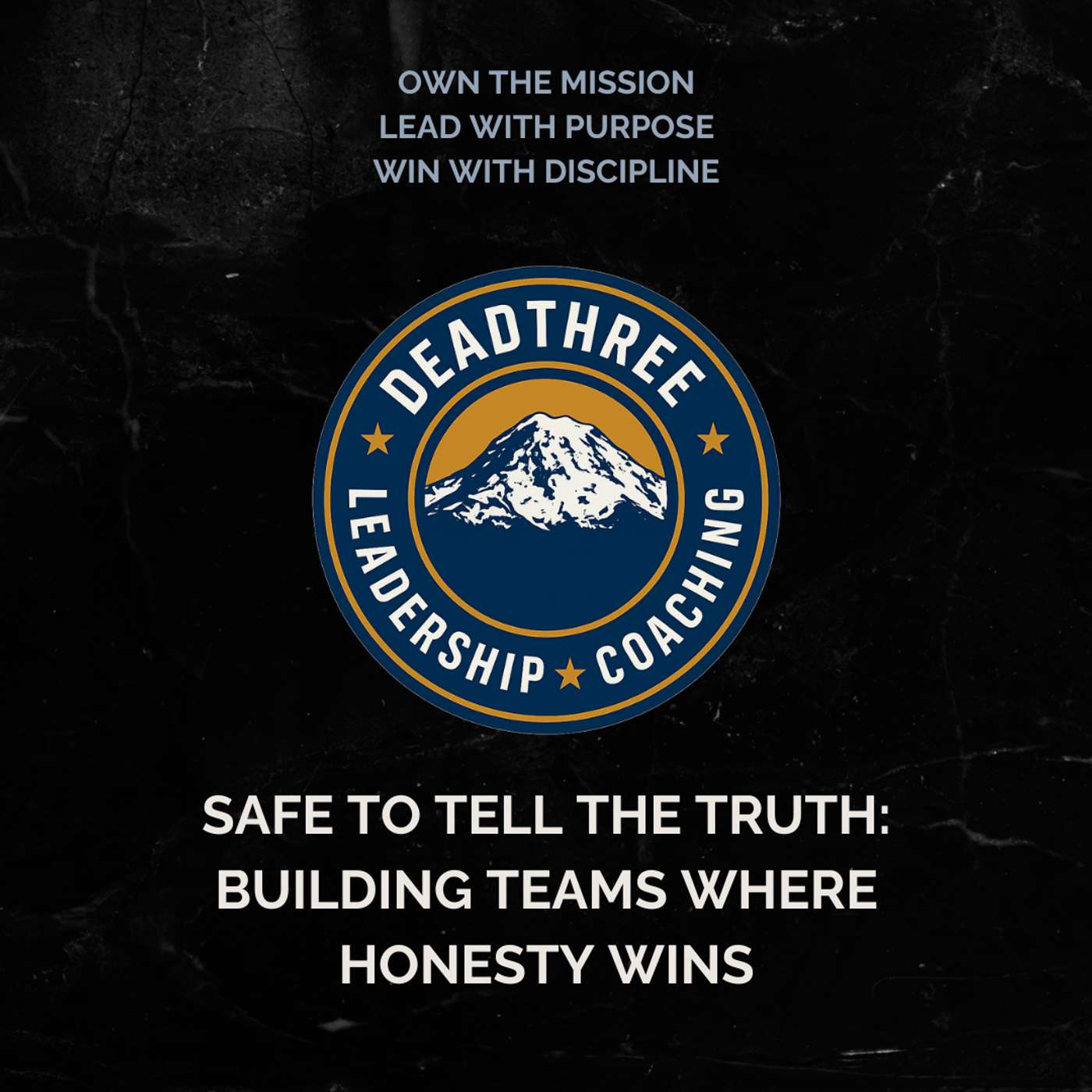Podcast Episode Details
Back to Podcast Episodes
Safe to Tell the Truth: Building Teams Where Honesty Wins
Episode 106
In this episode of the DeadThree Coaching Show, we dig into the foundation of every elite team: trust that makes truth-telling safe. If someone on your team spots a problem, do they feel safe to say it out loud—or do they go quiet and hope it goes away? Using insights from Patrick Lencioni’s The Advantage, Seth Godin’s Tribes, and real-world leadership examples (including UConn’s Dan Hurley), we unpack why silence is costly and how leaders create environments where people can speak freely, fail safely, and still feel valued.
👉 What you’ll learn
- Healthy vs. Smart Organizations: Why strategy/finance/tech don’t matter if morale is low and politics/confusion are high—and how organizational health starts with trust.
- The Two Kinds of Trust: Reliability (“I’ll deliver Friday at noon”) and psychological safety (“I can ask the hard question without fear”). You need both.
- The Cost of Silence: How unspoken problems bury mistakes, kill innovation, and drain engagement—while the conversation moves to side channels (DMs, hallways, spouses).
- Culture = What You Tolerate: Late arrivals, gossip, disrespect, weak meetings—each one signals what’s really allowed.
- Normalize Productive Conflict: Why intense, purposeful meetings (à la Hurley) surface truth, speed clarity, and accelerate execution.
- Change Feels Dangerous: How human nature resists disruption—and the rituals/language leaders use to make change safe and expected.
⏱ Timestamps
- 00:00 – The test of your culture: will people tell the truth?
- 02:00 – Lencioni’s model: trust → conflict → commitment → accountability → results
- 05:45 – The two kinds of trust and why safety matters
- 08:30 – The real cost of silence (and where the truth goes when it’s not said in the room)
- 12:10 – “Culture is what you tolerate”: practical examples
- 15:10 – Making meetings intense and safe (Hurley example)
- 18:30 – Why change feels dangerous (from Tribes) and what to do about it
- 22:00 – Leadership consistency, accountability, and protecting trust
- 24:30 – Three moves to build truth-safe teams this week
💬 Pull quotes
- “If your people aren’t telling you the truth in the room, they’re already telling someone else.”
- “Your culture isn’t what’s on the poster—it’s what you tolerate.”
- “Make it safe to speak freely, fail safely, and believe deeply that what I say matters.”
🔧 Try this this week (Action Items)
- Run a Truth Audit: Ask the team, “What’s one thing we’re not saying out loud that we need to?” Capture it. Discuss it. Decide next steps.
- Identify Your Tolerances: List 2–3 behaviors you’ve been letting slide (lateness, gossip, unclear ownership). Keep or kill—then communicate the standard.
- Celebrate Honest Mistakes: When someone raises a hard truth or owns an error, acknowledge it publicly and positively. Turn it into a learning moment.
📚 Referenced ideas
- The Advantage (Patrick Lencioni): Organizational health > organizational “smarts.”
- Tribes (Seth Godin): Culture naturally resists change—leaders must make change safe.
- UConn MBB / Dan Hurley: Intense meetings, high standards, high trust.
👥 Who this is for
Leaders, managers, coaches, founders, and team leads who want fewer politics, more clarity, higher morale, and faster execution.
🔗 Resources & Next Steps
- Join the DeadThree Community https://community.deadthreecoaching.com <
Published on 11 hours ago